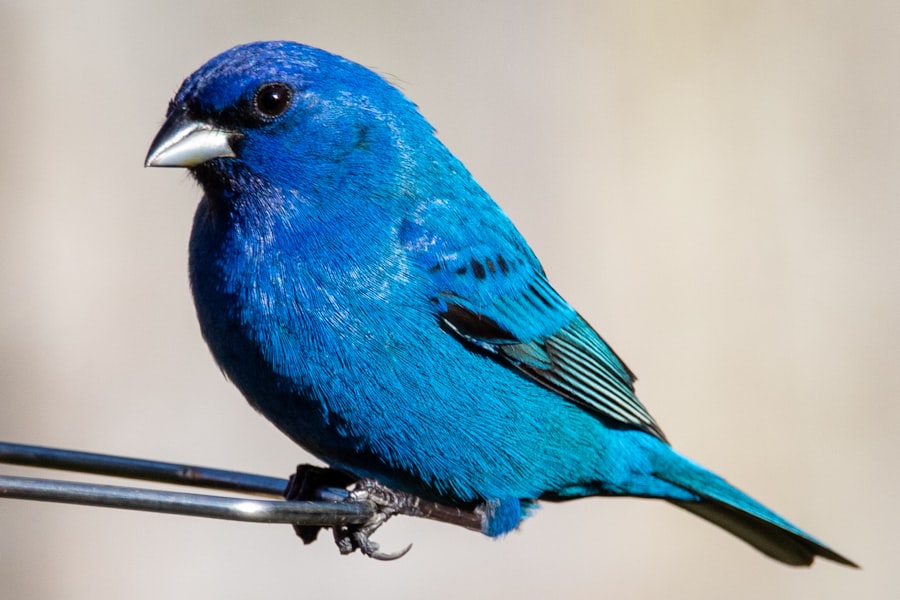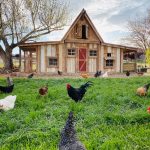When considering raising chickens, it is crucial to understand the local regulations and zoning laws in your area. Different cities and municipalities have varying rules and restrictions when it comes to keeping chickens. Some areas may have strict regulations on the number of chickens allowed, the distance of the coop from neighboring properties, and even the type of structures permitted for housing chickens.
It is important to research and familiarize yourself with these regulations to ensure that you are in compliance with the law. Furthermore, zoning laws may also dictate whether or not chickens are allowed in residential areas. Some neighborhoods may have specific restrictions on keeping livestock, including chickens.
It is essential to check with your local zoning department to determine if keeping chickens is permitted in your area. Failure to comply with these regulations can result in fines and legal consequences. By understanding and adhering to local regulations and zoning laws, you can avoid potential legal issues and conflicts with your neighbors, and ensure a smooth and lawful chicken-raising experience.
In addition, it is also important to consider the welfare of the chickens when abiding by local regulations. Ensuring that the coop and run meet the requirements set by the local authorities will help provide a safe and comfortable environment for the chickens. By understanding and following local regulations and zoning laws, you can create a harmonious and legal environment for raising chickens in your community.
Table of Contents
- 1 Choosing the right breed for your area
- 2 Building a secure and comfortable coop
- 3 Providing proper nutrition and care for your chickens
- 4 Understanding the legal responsibilities of chicken ownership
- 5 Maintaining a clean and odor-free environment
- 6 Being a responsible and considerate chicken owner in your community
- 7 FAQs
- 7.1 What are the legal requirements for keeping chickens?
- 7.2 Do I need a permit to keep chickens?
- 7.3 What are the housing requirements for chickens?
- 7.4 Are there any restrictions on the type of chickens I can keep?
- 7.5 What are the health and safety considerations for keeping chickens?
- 7.6 Are there any noise or odor regulations for keeping chickens?
Key Takeaways
- Research and understand local regulations and zoning laws before starting a chicken coop
- Choose a breed of chicken that is well-suited to your local climate and environment
- Build a secure and comfortable coop to protect your chickens from predators and the elements
- Provide proper nutrition and care for your chickens to ensure their health and well-being
- Understand the legal responsibilities of chicken ownership, including permits and waste disposal
- Maintain a clean and odor-free environment to be considerate of your neighbors
- Be a responsible and considerate chicken owner in your community by addressing any concerns or issues that may arise
Choosing the right breed for your area
Climate Considerations
For instance, if you live in a cold climate, you may want to consider breeds that are cold-hardy and can withstand harsh winters. Breeds such as the Plymouth Rock, Orpington, or Wyandotte are known for their cold tolerance and are well-suited for colder regions. On the other hand, if you live in a hot climate, you may want to choose breeds that are heat-tolerant and can handle high temperatures. Breeds such as the Leghorn, Sussex, or Rhode Island Red are known for their ability to thrive in warmer climates.
Purpose of Raising Chickens
In addition to climate considerations, it is also important to think about the purpose of raising chickens. If you are primarily interested in egg production, you may want to choose breeds known for their high egg-laying capabilities. Some breeds are specifically bred for their egg production and can lay hundreds of eggs per year.
Selecting the Right Breed
By choosing the right breed for your area, you can ensure that your chickens are well-suited to their environment and can thrive in their new home. Whether you’re looking for high egg production, meat quality, or a friendly temperament, there’s a breed out there that’s perfect for you. By considering the climate and purpose of raising chickens, you can make an informed decision and give your chickens the best possible start in life.
Building a secure and comfortable coop

Building a secure and comfortable coop is essential for the well-being and safety of your chickens. The coop serves as their shelter, protection from predators, and a place for them to roost and lay eggs. When constructing a coop, it is important to consider factors such as size, ventilation, insulation, and predator-proofing to ensure that it provides a safe and comfortable environment for the chickens.
The size of the coop is crucial to allow enough space for the chickens to move around freely and comfortably. A general rule of thumb is to provide at least 2-3 square feet of space per chicken inside the coop, and 8-10 square feet per chicken in the outdoor run. This will prevent overcrowding and reduce stress among the flock.
Additionally, proper ventilation is essential to maintain good air quality inside the coop and prevent moisture buildup, which can lead to respiratory issues in chickens. Insulation is also important, especially in colder climates, to provide warmth during winter months. Adding insulation to the walls and roof of the coop can help regulate temperature and keep the chickens comfortable during cold weather.
Furthermore, predator-proofing the coop is crucial to protect the chickens from potential threats such as raccoons, foxes, or birds of prey. This can be achieved by using sturdy materials for construction, adding locks to doors and windows, and burying wire mesh around the perimeter of the coop to prevent digging from predators. By building a secure and comfortable coop, you can provide a safe and nurturing environment for your chickens to thrive and flourish.
Providing proper nutrition and care for your chickens
Providing proper nutrition and care for your chickens is essential for their health and well-being. A balanced diet is crucial for egg production, growth, and overall health of the flock. A typical chicken diet consists of a combination of grains, protein, vitamins, minerals, and fresh water.
A good quality commercial feed formulated specifically for chickens is an excellent base for their diet. This feed provides essential nutrients such as protein, carbohydrates, vitamins, and minerals necessary for their growth and egg production. In addition to commercial feed, chickens also benefit from access to fresh greens, fruits, vegetables, and occasional treats such as mealworms or kitchen scraps.
These additional food sources provide variety in their diet and help keep them healthy and happy. Fresh water is also essential for chickens’ health and should be provided at all times. Clean water helps with digestion, regulates body temperature, and supports overall health.
It is important to regularly clean water containers to prevent bacterial growth and ensure that the water is free from contaminants. In addition to nutrition, regular care and maintenance are crucial for keeping chickens healthy. This includes monitoring their health, checking for signs of illness or injury, maintaining cleanliness in the coop, and providing regular access to outdoor space for exercise.
By providing proper nutrition and care for your chickens, you can ensure that they lead healthy and fulfilling lives.
Understanding the legal responsibilities of chicken ownership
Understanding the legal responsibilities of chicken ownership is crucial for being a responsible chicken owner. In addition to local regulations and zoning laws, there may be specific legal requirements related to chicken ownership that must be followed. These may include obtaining permits or licenses for keeping chickens, adhering to animal welfare laws, or complying with health and safety regulations.
Some areas may require chicken owners to obtain a permit or license before keeping chickens on their property. This may involve filling out an application, paying a fee, and meeting specific criteria set by the local authorities. Failure to obtain the necessary permits or licenses can result in fines or legal consequences.
Furthermore, it is important to adhere to animal welfare laws that govern the treatment of chickens. This includes providing adequate shelter, food, water, and veterinary care when needed. Neglecting these responsibilities can result in legal repercussions and may lead to confiscation of the chickens.
Health and safety regulations may also apply to chicken ownership, particularly concerning food safety if you are selling eggs or meat from your flock. It is important to understand these regulations and ensure compliance to avoid legal issues related to food production and distribution. By understanding the legal responsibilities of chicken ownership, you can ensure that you are compliant with the law and maintain a lawful and responsible approach to raising chickens.
Maintaining a clean and odor-free environment

Regular Cleaning of the Coop
Regular cleaning of the coop is crucial to remove waste, soiled bedding, feathers, and any leftover food or treats. This helps prevent bacterial growth, ammonia buildup from droppings, and reduces odors inside the coop. It is important to clean the coop at least once a week or more frequently if necessary.
Proper Waste Management
Proper waste management is also essential for maintaining a clean environment. Utilizing a deep litter method or regularly removing soiled bedding helps manage waste effectively while reducing odors. Composting chicken manure can also be beneficial as it provides a natural fertilizer for gardens while reducing waste buildup.
Maintaining Cleanliness in the Outdoor Run
In addition to cleaning the coop, maintaining cleanliness in the outdoor run is equally important. Regularly raking or turning over soil helps prevent waste buildup on the ground surface while providing a clean area for the chickens to roam. By maintaining a clean and odor-free environment for your chickens, you can ensure their health and well-being while being considerate of your neighbors’ living environment.
Being a responsible and considerate chicken owner in your community
Being a responsible and considerate chicken owner in your community is essential for fostering positive relationships with your neighbors and promoting harmony within your neighborhood. This involves being mindful of how your chicken-raising activities may impact those around you and taking proactive steps to address any concerns that may arise. Open communication with your neighbors is key to being a responsible chicken owner.
Informing them about your plans to raise chickens allows them to voice any concerns they may have upfront while giving you an opportunity to address those concerns proactively. This can help prevent potential conflicts before they arise. Additionally, being considerate of noise levels from crowing roosters or odors from the coop is important for maintaining positive relationships with neighbors.
Taking steps such as keeping roosters in soundproofed coops or managing waste effectively can help minimize disturbances caused by chicken-raising activities. Furthermore, being an active member of your community by participating in local events or initiatives can help build positive relationships with neighbors while promoting awareness about responsible chicken ownership practices. By being a responsible and considerate chicken owner in your community, you can foster positive relationships with neighbors while promoting harmony within your neighborhood.
This not only benefits your own experience as a chicken owner but also contributes to a thriving community where everyone can coexist harmoniously.
If you’re interested in legally keeping chickens, you may also want to check out this article on what to feed ducks. It provides valuable information on how to properly care for ducks and ensure they are getting the right nutrition.
FAQs
What are the legal requirements for keeping chickens?
In most areas, there are local ordinances and regulations that dictate the number of chickens allowed, coop requirements, and distance from neighboring properties. It is important to check with your local government or zoning board to ensure compliance with these regulations.
Do I need a permit to keep chickens?
Some areas may require a permit to keep chickens, while others may not. It is important to check with your local government or zoning board to determine if a permit is necessary.
What are the housing requirements for chickens?
Chickens require a secure and predator-proof coop that provides adequate space for roosting and nesting. The coop should also have access to fresh air, natural light, and be kept clean to prevent disease.
Are there any restrictions on the type of chickens I can keep?
Some areas may have restrictions on the types of chickens allowed, such as prohibiting roosters or certain breeds. It is important to check with your local government or zoning board to determine any restrictions on chicken breeds.
What are the health and safety considerations for keeping chickens?
It is important to keep chickens healthy by providing proper nutrition, access to clean water, and regular veterinary care. Additionally, proper waste management and biosecurity measures should be in place to prevent the spread of disease.
Are there any noise or odor regulations for keeping chickens?
Some areas may have regulations regarding noise and odor from chicken coops. It is important to be considerate of neighbors and to comply with any local regulations regarding noise and odor.
Meet Walter, the feathered-friend fanatic of Florida! Nestled in the sunshine state, Walter struts through life with his feathered companions, clucking his way to happiness. With a coop that’s fancier than a five-star hotel, he’s the Don Juan of the chicken world. When he’s not teaching his hens to do the cha-cha, you’ll find him in a heated debate with his prized rooster, Sir Clucks-a-Lot. Walter’s poultry passion is no yolk; he’s the sunny-side-up guy you never knew you needed in your flock of friends!







